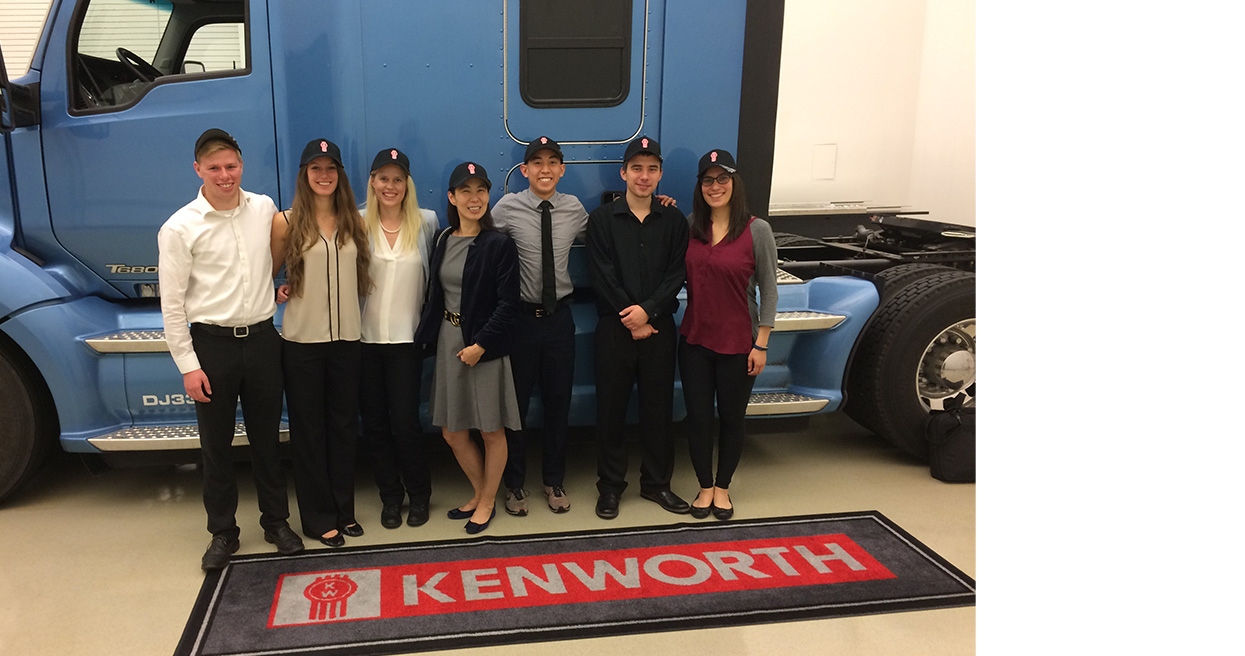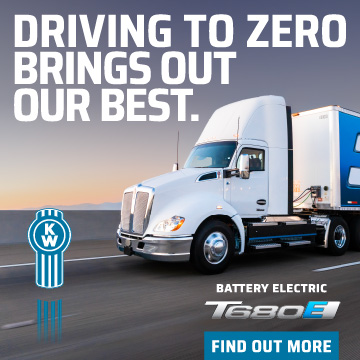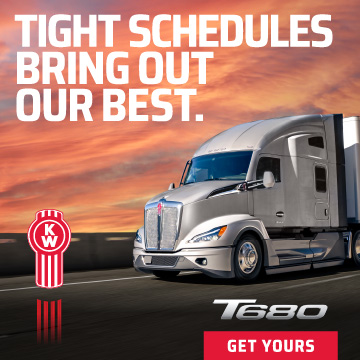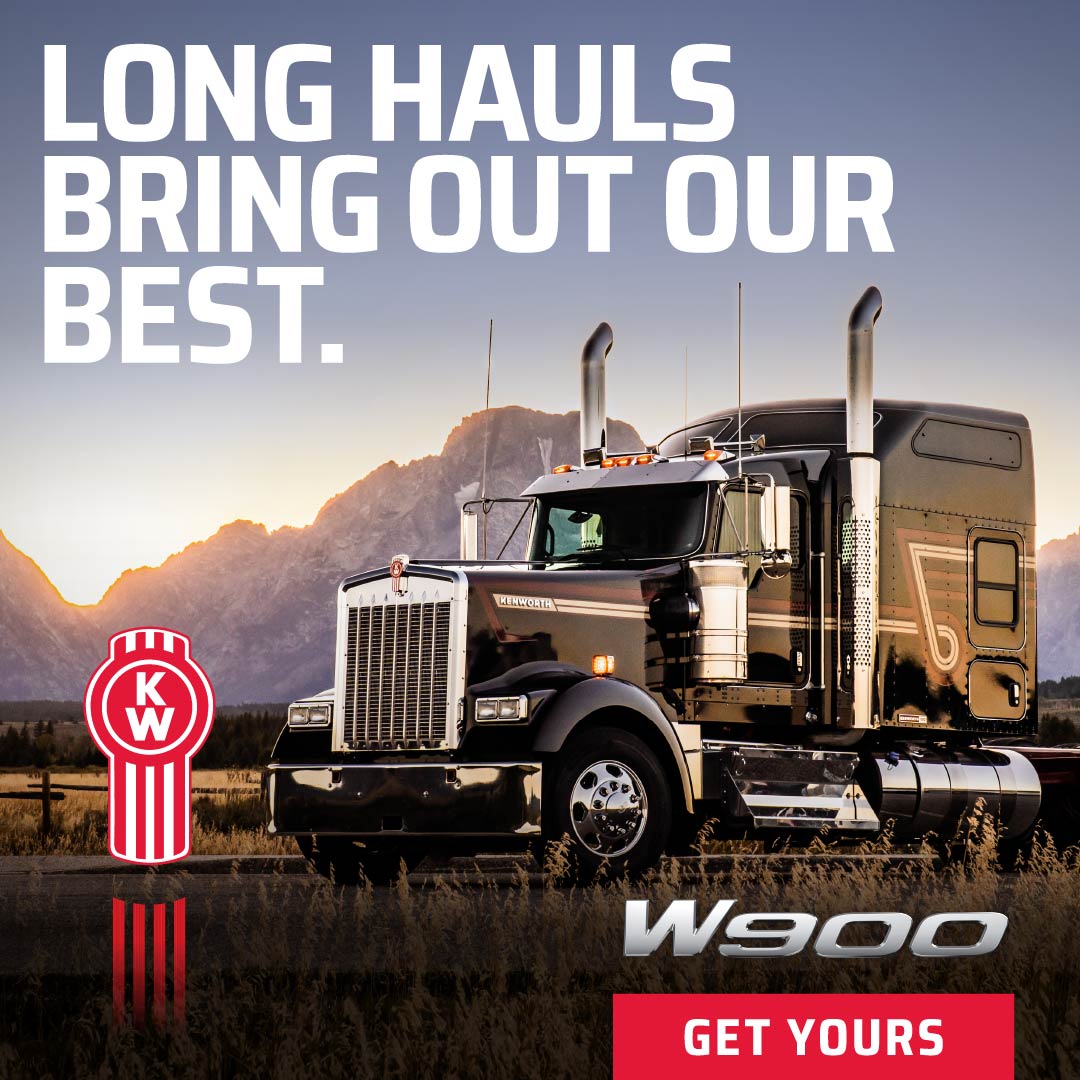Kenworth Works with Seattle University for Real-World Experiences
For the past 33 years, engineering students at Seattle University have applied their education to real-world application. It’s part of a program with Kenworth in which senior year mechanical and electrical engineers participate in “Capstone” projects with local companies. Capstone enables students to put much of their knowledge to work in an academic year-long class to create something tangible that one day might be commercially produced.
“It’s a win-win program,” said Jean Jacoby, associate dean of the College of Science and Engineering at Seattle University. “Our students look forward to their senior year where they’re handed a project from Kenworth and can explore and create solutions. Kenworth has been a great partner in providing opportunities for students to get to the know the trucking industry and Kenworth – while giving them worthwhile projects that can be critiqued and possibly produced down the road. It’s been exciting.”
Over the years, the Seattle U students have completed 44 Kenworth projects – everything from how to couple tractors to trailers automatically, to autonomous truck technology. “These aren’t easy projects,” said Reid Nabarrete, who graduated from Seattle U in 1987, one year before Kenworth began working with the school. Today, Nabarrete heads up the program for Kenworth in his role as assistant chief engineer – operations.
“The students are totally engaged and bring new ideas to the table,” Nabarrete continued. “Most have never been exposed to the technology that goes into designing trucks. We open their eyes and they get excited about the industry. Throughout the program, we work with the Seattle U students to mentor and answer any questions they might have. They present their findings to Kenworth engineers at the end of the year, then later to faculty and students at the university. We’re often amazed at what they produce. Some of their ideas were so good that patent applications were submitted. That tells you something right there.”
This year, the students are facing the added challenge of the current environment. “We’re especially proud of these very resilient Seattle U seniors, who have seen their last year of college get disrupted. Yet, here they are, still able to participate remotely and contribute in a meaningful way for their capstone project,” Nabarrete said.
The early exposure to Kenworth and the trucking industry in past years has led many of the students to careers at Kenworth. “We now have 14 graduates from Seattle U working in engineering at Kenworth,” said Nabarrete. “There is a nice bond among the group. They all started off with a senior project with Kenworth.”
Nick Outlaw, a 2014 Seattle University graduate, and now member of the Outerbody Group at Kenworth, said he had an open mind as to what he wanted to do when he was at Seattle U. “My wife worked at Boeing, and I knew about Kenworth and PACCAR,” he said. “I always enjoyed anything automotive-related, so it was great that I got the early exposure to Kenworth during our senior project.
“During our Capstone project, we looked at converting the cooling system on a Kenworth from mechanical to electrical. We learned you have to pull horsepower from an engine to power the cooling system, so Kenworth wanted us to see if that could be accomplished electrically instead. I remember we came up with an array of ideas, theories and then next steps, which we presented to Kenworth. It really allowed us to apply all our education to a real-world problem,” Outlaw said.
For Caroline Hofgaard, the road to Kenworth actually began in Norway. She came to the Seattle area in 2009, getting an economics degree from nearby Pacific Lutheran University, prior to enrolling at Seattle U to pursue her passion in engineering. She joined Kenworth after graduating in 2017, and is now a design engineer in the Suspension Group.
“I was always interested in science and my family has a long history in engineering,” she said. “So, I followed along in those footsteps. When I came here, I didn’t know much about trucks other than what I saw in Norway – cabovers are used there due to the narrow roads. I wasn’t sure what to expect when my senior project was with Kenworth. I remember being surprised and overwhelmed when we learned about all the technology that was built into a Kenworth. The project Kenworth gave us – how to couple tractors to trailers automatically – really built my interest in finding ways to make something work. It allowed us to use our critical thinking.”
And, according to Jacoby, that’s what the program is all about. “We want to challenge our students, and yes, have them use their critical thinking. The projects we do with Kenworth get our students excited about putting their knowledge to work. They get to apply what they’ve studied. The Capstone Project we have here is something they’ll never forget. And, for many, it was their stepping-stone to a career in the trucking industry.”














